How To Find Addiction Counseling Near Me?
Finding addiction counseling services in your local area is crucial to seeking immediate help and support for addiction-related issues. Knowing where to turn for professional guidance and treatment is paramount whether you or a loved one are struggling with substance abuse.
You may contact your local mental health clinics, hospitals, or addiction treatment centers to find addiction counseling near you. You can also inquire with your primary care doctor for recommendations or search online directories and resources that provide information about addiction counseling services available in your area.
The good news is that options are available to assist you in finding addiction counseling services tailored to your specific needs.
From conventional avenues like healthcare providers and treatment centers to online directories and community organizations, we’ll provide insights and tips on accessing the support you need to begin recovery.
Looking for addiction treatment counseling near you? Join thousands of clients who trusted We Level Up for alcohol and substance abuse treatments. Call 24/7 for more counseling for drug addiction information today. Your call is free and confidential. Access addiction professionals who understand your circumstances and are ready to help.
What is Addiction Counseling?
Addiction counseling typically involves individual or group therapy sessions, where individuals can receive emotional support and guidance as they navigate recovery. During these sessions, individuals work with a trained addiction counselor or an addict counseling specialist to develop coping mechanisms and strategies to manage triggers and cravings. They also address the underlying causes of their addiction, such as trauma, stress, and mental health disorders.
Addiction Counseling for Different Types of Addiction
Addiction counseling is a versatile and practical approach that can help individuals struggling with various forms of substance abuse. It provides a supportive and structured environment for individuals to address their addiction-related challenges, whether battling alcohol, drugs, prescription medications, or other substances. Through evidence-based therapies and personalized treatment plans, addiction counseling equips individuals with the tools and strategies to achieve and maintain sobriety. The following are the most common types of addiction counseling:
- Alcohol Addiction Counseling.
- Drug Addiction Counseling.
- Prescription Medication Addiction Counseling.
- Nicotine Addiction Counseling.
- Opioid Addiction Counseling.
- Stimulant Addiction Counseling (e.g., amphetamines, cocaine).
- Marijuana Addiction Counseling.
- Hallucinogen Addiction Counseling (e.g., LSD, mushrooms).
- Inhalant Addiction Counseling.
- Synthetic Drug Addiction Counseling (e.g., synthetic cannabinoids).
Causes of Addiction
Addiction can affect anyone, as it does not discriminate based on age, gender, socioeconomic status, or background. While some individuals may have a higher genetic predisposition to addiction, external factors like exposure to substances, social environment, and life experiences can also contribute to the development of addiction. The most common causes are:
- Genetic factors.
- Environmental influences.
- Psychological factors.
- Social and peer pressure.
- Stress and trauma.
- Mental health disorders.
- Availability and access to substances.
- Experimentation and curiosity.
- Coping with pain or emotional distress.
- Lack of healthy coping mechanisms.
Health Risks of Alcohol and Drug Addiction
Prolonged substance abuse can damage vital organs like the liver, heart, and brain, increasing the risk of life-threatening conditions such as cirrhosis, heart disease, and cognitive impairment. Moreover, addiction often coincides with mental health disorders, exacerbating symptoms and making it harder to manage and recover from both conditions.
The risk of overdose and premature death is also significantly elevated among individuals struggling with addiction, underscoring the severe health consequences of this complex and chronic condition. Common damages are:
- Liver damage and cirrhosis.
- Cardiovascular problems.
- Respiratory issues.
- Increased risk of cancer.
- Cognitive impairment.
- Mental health disorders.
- Risk of overdose and death.
- Weakened immune system.
- Gastrointestinal problems.
- Social and relationship problems.
Evidence-Based Therapies for Counseling Addiction
Science and evidence-based therapies and counseling can be used alone or with medications, depending on an individual’s needs and circumstances. They are backed by research and have demonstrated effectiveness in helping individuals overcome addiction. The following are the top choices:
Cognitive Behavioral Therapy (CBT)
CBT is a widely recognized and practical approach to addiction treatment. It helps individuals identify and change negative thought patterns and behaviors associated with addiction. By developing healthier coping strategies and addressing underlying issues, CBT can promote long-term recovery.
Motivational Interviewing (MI)
MI is a client-centered approach to enhance motivation and commitment to change. It helps individuals explore their ambivalence about quitting substance use and empowers them to make positive decisions regarding their addiction. MI is often used in the early stages of addiction treatment.
Contingency Management (CM)
CM is a behavior-based therapy that provides tangible rewards or incentives for abstaining from drugs or alcohol. It reinforces positive behavior and adherence to treatment goals, making it particularly effective in treating substance use disorders.
Dialectical Behavior Therapy (DBT)
DBT combines elements of CBT with mindfulness techniques. It’s effective for individuals struggling with substance abuse and co-occurring mental health issues. DBT teaches skills to manage emotions, tolerate distress, and improve interpersonal relationships, which are crucial for addiction recovery.
Individual Addiction Counseling
Individual counseling is a one-on-one therapeutic approach that provides personalized support and guidance for individuals struggling with substance abuse. During these sessions, clients can explore the underlying causes of their addiction, develop coping strategies, and set and work toward their recovery goals in a confidential and tailored manner.
Group Addiction Counseling
Therapy sessions are conducted with a small group of individuals facing similar addiction challenges. It allows participants to share experiences, receive peer support, and learn from one another while working with a trained therapist to address their addiction issues collectively.
Family Addiction Counseling
This therapeutic approach involves the participation of family members and focuses on addressing the impact of addiction on the entire family system. This type of counseling aims to improve communication, understanding, and support among family members, helping them navigate the challenges of addiction and support their loved one’s recovery.
Addiction Counselors
Counseling for addiction can be a challenging and rewarding profession. Addiction counselors are critical in helping individuals overcome addiction and rebuild their lives. They must be compassionate, patient, and knowledgeable about addiction and recovery. They must also possess strong communication skills and the ability to build trust with their clients. Addiction counselors are trained and equipped to deal with different cases. Alcohol and drug counselors are:
- Substance Abuse Counselor.
- Addiction Therapist.
- Chemical Dependency Counselor.
- Alcohol and Drug Counselor (ADC).
- Recovery Coach.
- Licensed Professional Counselor (LPC) specializing in addiction.
- Certified Alcohol and Drug Counselor (CADC).
- Behavioral Health Counselor.
- Addiction Psychologist.
- Addiction Psychiatrist.
Unfortunately, despite the benefits of addiction counseling, many individuals struggling with addiction do not receive the help they need. According to the National Survey on Drug Use and Health (NSDUH), in 2020, an estimated 17.8 million adults aged 18 or older required but did not receive treatment for illicit drug use and alcohol use in the past year. This highlights the need for increased access to addiction counseling and other forms of addiction treatment.
If you or someone you know is struggling with addiction, seeking help from a qualified addiction counselor or counseling program is essential. Individuals can overcome addiction and achieve long-term recovery with the proper support and guidance.
Long-Term Addiction Counselling
Long-term addiction counseling is crucial in supporting individuals’ journey to sustained recovery. This form of counseling offers ongoing assistance and guidance to help individuals address the root causes of their addiction and develop coping mechanisms for the challenges they may encounter.
It promotes relapse prevention by continually reinforcing healthy behaviors and providing a safe space for individuals to discuss their progress and setbacks. Long-term addiction counseling recognizes that recovery is a lifelong process and offers the support needed to maintain sobriety and lead a healthier, substance-free life.
Tips for Finding a Therapist Specializing in Addiction Near Me
How to find a therapist for alcohol addiction near me? Where to find an addiction and depression therapist near me? Most often, amidst our challenges with addiction, we don’t know where to begin searching for help. Are you seeking alcohol addiction therapists near me? Contact We Level Up now to search for an alcohol addiction therapist near me. We also have facilities for substance abuse and mental health conditions.
Also, recovering from addiction can benefit from a change of environment in some cases, such as seeking treatment at an inpatient rehab facility in another state. This change can provide a fresh start and reduce exposure to triggers and negative influences. Individuals can immerse themselves in a supportive and structured treatment program in a different location to enhance their chances of successful recovery.
- Consult with Referral Sources: Reach out to your primary care physician, healthcare provider, or psychiatrist for recommendations on therapists who specialize in addiction. They can provide valuable referrals based on your specific needs and location.
- Check Online Directories: Utilize online directories, such as Psychology Today, SAMHSA’s Treatment Locator, or your state’s mental health services website, to search for therapists specializing in addiction in your area. These directories often provide detailed profiles of therapists, including their areas of expertise.
- Seek Recommendations: Ask for recommendations from friends, family members, or support groups if you’re comfortable doing so. Personal referrals can often lead to finding therapists with a good reputation for their work in addiction counseling.
Are you searching for addictions counseling near me? Get addiction counseling that works. Discover professional help from We Level Up’s addiction and mental health therapists. Start getting support with a free call to our addiction hotline.
Meet The Addiction Counseling and Leadership Team of We Level Up
Alexandra Korotkevich Chief Executive Officer at We Level Up Treatment Center Pompano Beach, Florida, United States About: We Level Up was created to drive a moment of change. It is a lifestyle with the purpose to live in empowering beliefs through connection, authenticity, self-love, emotional integrity, and service to others. Through this WLU offers personal development events, coaching, and drug, and alcohol treatment. Our vision is to help create legions of self-empowered individuals who are completely in control of their lives and destinies, enabling them to get what they desire from this life, experiencing it to their fullest, most liberating potential. Through these hosts of self-empowered, and self-aware individuals, we will see families that communicate with more love, trust, and caring for one another, businesses that thrive in ways never before thought possible, and friendships that reach new heights. We Level Up produces a liberation from the mental chains that bind us, and enable us to operate at our fullest capacity. Have you ever wondered why you’re always living the same patterns over and over, end up feeling like a victim, or making the same choices that always lead to stress, anguish, and inevitable upset? We Level up offers not an answer, but a solution to these grave dilemmas that face us on a daily basis. Education Nova Southeastern University Master of Business Administration 2007 - 2008 Nova Southeastern University Bachelor of Science 2004 - 2007
Brian Acker is Director of IT at We Level Up. Brian Acker was born and raised in Pennsylvania and has been working in the field of addiction treatment since 2014. He currently serves as the Director of Information Technology for We Level Up treatment centers. His passion for technology and his driving force to become the best version of himself is what truly sets him aside from the rest. Brian brought with him his extensive knowledge in the IT field as well as many other business skills to the We Level Up team in 2020 as the Director of Information Technology. His favorite part about working for We Level Up, is being able to help those who are continuing to struggle with the disease of addiction and show them a new way of life.
Christopher Nerone is the Vice President of Admissions and Call Center at the We Level Up Treatment Centers network. Also known as CJ, Christopher has been working in the field of addiction treatment serving national networks streamlining their operations for best practices. CJ is passionate about helping patients and their families during the most difficult times of their lives. According to CJ, his primary mission and focus is to ensure that each family and patient seeking help receives the compassion, love, and care that they deserve. CJ has matured into his role with hard work, dedication, willingness to go the extra mile, along with exceptional leadership skills in the treatment center industry. Having worked at another national treatment center network, CJ brings a wealth of knowledge and expertise to help drive improved operations serving our each of our facilities and their clients.
Karine O'Loughlin, Director of Call Center Operations at We Level Up. Karine is responsible for providing the link between the admissions process and our clinical team. She performs an assessment for many of our facilities on all potential admits determining if they meet our clinical criteria of care. Help in the organization of transportation and accommodations for all pending admissions. Speak with the families and loved ones of all clients and potential clients to ensure that all needs and concerns are met. Build relationships within the field to further enhance our growth and to provide all in need with the possibility of help.
Stacy has a long history as a clinician specializing in counseling people on substance use and mental health. Her unmatched professionalism and extensive skill set allowed her to excel when working with people from markedly different age groups. She has helped countless adolescents, adults, couples, and families conquer their addictions and build brighter futures for themselves. In her work, Stacy Linn focuses on making improvements to the quality of life of her patients. She takes the time to help people understand the meaning of family dynamics and cognitive processes in relation to their mental health.
After receiving a Master’s Degree in Mental Health Counseling from Nova Southeastern University, Stacy Linn proceeded to become a Licensed Mental Health Counselor, Master’s Level Certified Addiction Professional, and International Certified Drug and Alcohol Counselor. She has a strong reputation for helping people who have struggled with addiction achieve long-term recovery.
Josie Bornstein is originally from Deer Park, Washington and has lived in the Spokane area most of her life. She attended Whitworth University and graduated as a first-generation college student, majoring in Health science and Community health, with a minor in Psychology. She has an extensive background in mental and behavioral health and has been a part of opening many new inpatient and outpatient programs for at risk youth around Spokane. With her lived and professional experience, mental health is something that Josie is extremely passionate about. She knew from an early age that she was meant to help people who struggle with their mental health. Josie is not only passionate about the patients she works with, but also the people she gets to coach and mentor as a part of leadership. She became the Operation Manager at We Level Up because the motto matched her passion; Providing you with a map back to your fullest, most authentic potential, so you can choose a dream without limitations.
Kyle J. Rooney, MA, LCADC, CCS Kyle is currently a Licensed Clinical Alcohol and Drug Counselor and a Certified Clinical Supervisor in the state of New Jersey. Kyle is currently a Senior Adjunct Professor at Atlantic Cape Community College in Mays Landing, NJ. He teaches the NJ State Licensing and Certification courses for Drug and Alcohol Counselors, Professional Issues in Addiction Counseling and Assessment Skills in Addiction Counseling. He has previously taught Introduction to Substance Abuse Counseling at Harcum College in Bryn Mawr, PA. Kyle currently serves on the Atlantic Cape Community College Psychosocial Rehabilitation and Addiction Counseling Advisory Board. Kyle has extensive experience in the Addiction Counseling field working in all levels of care and serving clients and their families in a multitude of clinical and leadership roles. Kyle previously worked as a full-time Care Coordinator for the New Jersey Work First Substance Abuse and Behavioral Health Initiative where he had the pleasure of doing substance use and mental health assessments for the Board of Social Services and the Division of Child Protection and Permanency. Kyle is experienced as a family support group facilitator, primary therapist, group facilitator, and director of substance abuse counseling. Kyle has worked tirelessly to help clients and their families understand the root causes behind addictive behavior. As a clinician, Kyle is trained and experienced in CBT, DBT, REBT, and ACT cognitive therapies. Kyle earned his master’s degree in counseling psychology in 2018 from Rosemont College in Bryn Mawr, PA where he graduated with Magna Cum Laude Honors. Kyle has been personally affected by addiction and he uses his personal experience to inspire hope in the clients that he serves. Kyle enjoys crabbing, fishing, hiking, kayaking, tent camping, traveling, and following Philadelphia sports teams and the Notre Dame Fighting Irish college football team.
Dr. Ali Nikbakht, LMFT, is a Licensed Marriage and Family Therapist. He has a specialization in addiction studies and co-occurring disorders. He earned his bachelor’s degree from UCLA, graduated from Trinity Law School, and has earned his doctorate in Psychology in Marriage and Family Therapy from the California School of Professional Psychology. Currently he is finishing his doctorate in Business Administration specializing in Health Care. Dr. Nikbakht has been with We Level Up California since its development in 2021 and has brought 15 years of his professional work experience and knowledge in the field of psychology, addiction, and family systems to helping individuals and families heal from internal conflict. The fundamental elements to his practice are respecting life choices and deep beliefs regardless of the individual and families’ circumstances. Dr. Nikbakht’s role is and always has been to create the necessary space in which new choices and solutions will unfold to help enhance the lives of individuals and their loved ones.
As the Director, Business Development Sean works closely with internal and external teams to drive both regional and national business strategy of the We Level Up behavioral health centers network. This role is part of a core team that evaluates and executes business development opportunities that drive regional growth. The focus is to drive growth through diversified channels including referrals (employer, community, physician, and patient), partnerships, new and expanded access and all contracts that impact revenue for the multi state centers under management. The Director, Business Development provides recommendations, based upon research and analysis, for potential partnerships, contracts, referrals and other market expansion opportunities.
Versatile and dedicated Head of HR with extensive talent acquisition, compliance, employee training, dispute resolution, and compensation management experience. Adept at resolving conflicts, negotiating benefits packages, conducting investigations into complaints, providing legal support, and handling various other critical human resources responsibilities. Experienced in offering proactive guidance and support to management on effective coaching and counseling techniques to ensure employee success, as well as consistently maintaining compliance with employment and labor laws as set forth by State and Federal regulations to minimize legal complications. Proven track-record of reducing turnover, minimizing workplace injuries, and increasing performance by high percentages through various HR leadership strategies.
The Director of Utilization Review/ Discharge manages the operations of the Discharge Planning and Utilization Review Department and ensures compliance with patient care quality standards. Coordinates activities in the process of evaluating the use of professional medical care, services, procedures and facilities using pre-established criteria; performs admission and concurrent review of all patients using pre-established criteria. Interfaces with other departments, mental health professionals and external review agencies; appeals adverse decisions by external review agencies. To ensure that financial benefits are maximized in the treatment and discharge planning for assigned cases through initial and continued stay reviews, prior authorization work for discharge services, effective liaison work and communication between business office and treatment team, implementation of the discharge plan, and active pursuit of appeals.
As Director of Clinical Services and Quality Assurance, Lauren is responsible for overseeing, directing, and supervising all clinical departments. Lauren guides our team of clinicians on best practices and provides the highest quality therapeutic care for our clients.
Moreover, Ms. Barry assists, reviews, and helps direct the We Level Up treatment centers written website content. She reviews select website content for proper context, accuracy, relevancy, and authority including research and citations mentioned.
In addition, Lauren works tirelessly on developing new and innovative clinical programs and approaches in the hopes of maximizing our ability to help our clients. Since starting her master’s degree in Marriage and Family Therapy at Nova Southeastern University in 2013, Lauren has been passionate about helping individuals and families afflicted by the disease of addiction.
Lauren has held several roles within substance abuse and mental health medical practices, from primary therapist to Clinical Director and beyond. Lauren is a licensed marriage and family therapist in the state of Florida and a Master’s level CAP (Certified Addiction Professional). In addition to her passion for helping clients, Lauren is extremely motivated and dedicated to helping her team become the best versions of themselves and developing their professional skills. Lauren displays great leadership skills and her mission is to inspire, empower and motivate those around her.
Guy Shapira, as the Director of Digital Marketing at We Level Up Treatment Center, is a visionary marketer with a passion for leveraging digital strategies to drive meaningful impact and awareness in the behavioral health recovery space. With a keen understanding of industry trends and consumer behavior, Guy leads the digital marketing efforts at We Level Up, crafting compelling campaigns and engaging content to connect with individuals seeking holistic healing and recovery. Drawing upon his extensive experience in digital marketing and branding, Guy is dedicated to creating innovative and targeted initiatives that resonate with audiences, inspire action, and amplify the message of hope and transformation offered by We Level Up Treatment Center. His strategic approach to digital marketing combines creativity, data-driven insights, and a deep commitment to supporting individuals on their journey to wellness and well-being. He plays a key role in developing and executing digital marketing client acquisition, SEO organic and paid search lead generation campaigns that enhance the visibility and impact of the treatment center's programs, services, and mission. Through a blend of creativity, analytics, and storytelling, he strives to empower individuals to take the first step towards healing and recovery, guiding them towards a brighter and healthier future. Through a strategic vision and digital expertise, Guy contributes to creating a digital presence that inspires hope, fosters connection, and promotes positive change within the behavioral health recovery community.
Overcoming Drug and Alcohol Abuse with Addiction Counseling
Drug and alcohol counseling is a form of therapy that helps individuals overcome substance abuse disorders. These disorders are characterized by repeated and excessive use of drugs or alcohol despite adverse consequences. Drug and alcohol counselors work with individuals to develop coping mechanisms and strategies to address the underlying causes of their addiction.
They also provide emotional support and guidance as individuals navigate the recovery process. Counseling sessions may involve individual or group therapy and can occur in various settings, including inpatient rehab, residential treatment facilities, and community centers. The goal of drug and alcohol counseling is to help individuals achieve and maintain long-term recovery, improve their overall quality of life, and reduce the risk of relapse.
How Does Addiction Counseling Work?
Addiction counseling is a therapeutic process that aims to help individuals overcome substance abuse and behavioral addictions. It typically starts with an assessment to understand the extent and nature of the sickness. The counselor then works with the client to set personalized goals for recovery. Treatment may involve individual or group therapy sessions, where clients learn coping strategies, address underlying issues, and develop a support network. Ongoing monitoring and relapse prevention strategies are also crucial components of addiction counseling to help individuals maintain their sobriety and achieve lasting recovery.
Why You Should Start Addiction Counseling Now?
Why choose drug addiction counseling near me? Starting addiction counseling near you now is crucial for several reasons:
- Prevent Worsening of the Condition: If left untreated, addiction can progressively worsen, leading to severe physical, psychological, and social consequences.
- High Success Rate: Early intervention can improve the chances of successful recovery, as it helps individuals address their addiction before it becomes deeply ingrained.
- Safe Environment to Recover: Addiction counseling provides a safe and supportive environment to explore the underlying causes of addiction and develop healthier coping mechanisms.
- Relapse Prevention: Delaying treatment can lead to a higher risk of relapse, making it harder to break free from the cycle of addiction.
- Improved Quality of Life: Seeking help now can lead to an improved quality of life, better relationships, and enhanced overall well-being as individuals work toward sobriety and personal growth.
We Level Up Treatment Center Can Help
Creating a treatment plan that addresses the physical aspects of withdrawal, the psychological connection with drug use, and managing underlying mental health disorders is part of setting clients up for success. A thorough mental health analysis identifies possibilities for treatment. Meeting with mental health counselors and medical care providers means access to behavioral therapy and medication treatment. At our dual diagnosis treatment center, We Level Up can implement the highest quality of care.
Accepting that you may be living with a mental illness or addiction can be challenging. However, treating the presenting substance abuse case can be easier once correctly diagnosed and treated.
Only a properly trained medical professional can diagnose these underlying conditions. If you believe you are suffering from a disorder alongside addiction, we urge you to seek a qualified treatment center to begin your journey to recovery. Call We Level Up today.
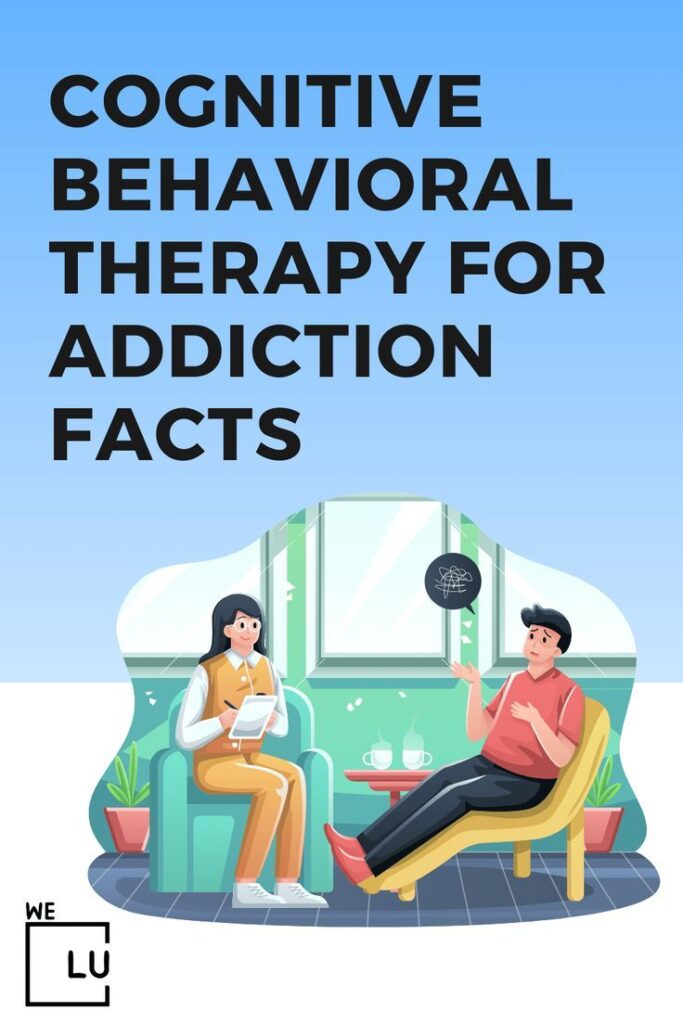
Skip To:
Learn More:
- What is Drug Counseling? The Benefits of Drug and Alcohol Counseling
- Family Therapy for Addiction and Substance Abuse
- Understanding The Purpose of Group Therapy
- Top Therapy for Drug Addiction and Abuse
- Holistic Therapy Program for Addiction Recovery
- Recreational Therapy Programs and Activities
- What is Dialectical Behavior Therapy (DBT)?
- What is Cognitive Behavioral Therapy (CBT)?
- Dialectical Behavior Therapy vs Cognitive Behavioral Therapy
- Benefits of Solution-Focused Therapy
Are you trying to locate drug or alcohol addiction counseling near me? View more We Level Up treatment centers.
Featured We Level Up Treatment Centers and Addiction Counseling
Overcoming alcohol or drug addiction can be challenging and lonely. Many people struggle to quit independently and often relapse to alleviate their addiction and withdrawal symptoms or satisfy their cravings.
However, with We Level Up’s addiction counseling and a solid support system, you can experience a more manageable and successful recovery. If you require rehab and addiction counseling assistance, don’t hesitate to contact a treatment advocate 24/7.
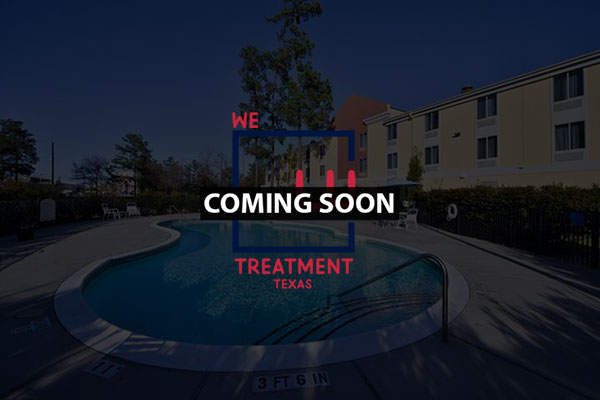
We Level Up Texas
Drug & Alcohol Addiction Treatment Center w/Detox
Licensed & Accredited w/ 5-star reviews.- Inpatient addiction rehab center w/medical detox
- Addiction treatment and detox for alcohol, benzo, heroin, opioid, and more.
- Secondary mental health treatment available as part of our dual diagnosis programs.
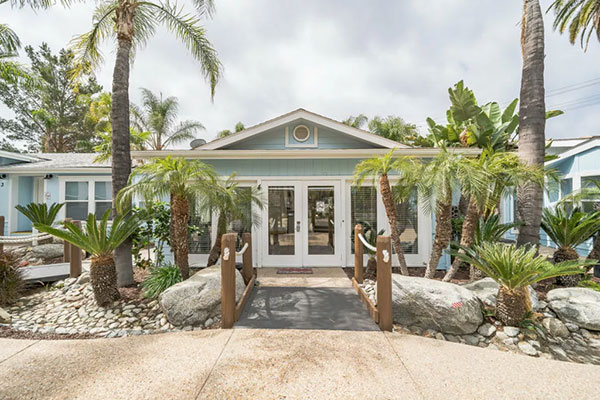
We Level Up California
Drug & Alcohol Addiction Treatment Center w/Detox
Licensed & Accredited w/ 5-star reviews.- Inpatient addiction rehab center w/medical detox
- Addiction treatment and detox for alcohol, benzo, heroin, opioid, and more.
- Secondary mental health treatment available as part of our dual diagnosis programs.
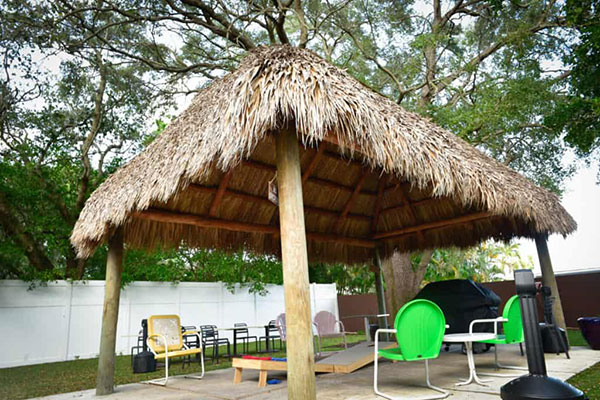
We Level Up Fort Lauderdale
Premier Behavioral Health Treatment Center
Licensed & Accredited w/ 5-star reviews.- Inpatient mental health treatment center
- Therapy for depression, anxiety, trauma, bipolar disorder, PTSD, and more.
- Dual diagnosis rehab programs available

What is Online Addiction Counseling?
Online addiction counseling is becoming increasingly popular due to its accessibility and convenience. This form of counseling is delivered online using various platforms, such as video conferencing, chat, and email.
With the rise of telemedicine and online therapy, individuals can now access addiction counseling services from the comfort of their own homes. This is particularly beneficial for individuals who live in rural areas or who have difficulty accessing traditional addiction counseling services. Online addiction counseling can also be helpful for individuals who are unable to attend conventional in-person counseling sessions. For example, homebound individuals due to illness or disability or who cannot take time off work, can benefit from the flexibility and convenience of online counseling.
Despite the benefits of online addiction counseling, it may not be suitable for everyone. Individuals with severe substance abuse or co-occurring mental health disorders may require more intensive in-person treatment. However, for individuals with milder forms of addiction, online counseling can be an effective and convenient way to access addiction counseling services.
Addiction Counseling Fact Sheet
What are the 8 Practice Dimensions of Addiction Counseling?
The eight practice dimensions of addiction counseling, as outlined by the National Association for Alcoholism and Drug Abuse Counselors (NAADAC), are a framework to guide addiction counselors in their work.
These dimensions help counselors address the multifaceted aspects of addiction treatment:
- Clinical Evaluation: Conduct comprehensive assessments to understand the client’s substance abuse history, mental health, physical health, and social factors influencing addiction.
- Treatment Planning: Collaborating with the client to create an individualized treatment plan that sets goals, objectives, and strategies for recovery.
- Referral: Identifying and facilitating referrals to other professionals or services when needed, such as medical, psychiatric, or legal assistance.
- Service Coordination: Coordinating and collaborating with various providers ensures the client receives comprehensive, integrated care.
- Counseling: Providing evidence-based counseling approaches, both individual and group therapy, addresses addiction’s psychological and emotional aspects.
- Client, Family, and Community Education: Educating the client and their family and community about addiction, treatment options, and recovery resources.
- Documentation: Maintaining accurate and confidential records of client progress, assessments, treatment plans, and interventions, ensuring compliance with legal and ethical standards.
- Professional and Ethical Responsibility: Adhering to ethical guidelines and legal standards to maintain professional competence and self-care to provide the best possible care for clients.
These practice dimensions help addiction counselors deliver effective and holistic treatment to individuals struggling with addiction, addressing their physical, psychological, and social needs throughout recovery.
12 Core Functions of Addiction Counseling
The 12 core functions of addiction counseling, often used as a framework for substance abuse treatment, were developed by the International Certification and Reciprocity Consortium (IC&RC). These functions guide addiction counselors in their work with clients dealing with substance abuse issues:
- Screening: Identifying individuals who may have a substance use disorder through assessment and evaluation.
- Intake: Gathering comprehensive information from clients, including their history, treatment needs, and goals.
- Orientation: Providing clients with information about the counseling process, treatment options, and program policies.
- Assessment: Conducting a thorough evaluation of the client’s physical, psychological, social, and spiritual needs to determine an appropriate treatment plan.
- Treatment Planning: Collaborating with clients to create a personalized treatment plan that addresses their unique needs and goals.
- Counseling: Offering individual or group therapy sessions to help clients address their substance use issues and develop coping skills.
- Case Management: Coordinating various services and resources to support the client’s recovery, such as medical, legal, or housing assistance.
- Crisis Intervention: Providing immediate support and intervention when clients face crises related to their substance use.
- Client Education: Offering information and guidance to clients about substance abuse, addiction, and recovery.
- Referral: Identifying and facilitating referrals to other professionals or specialized services that may be needed, such as medical or psychiatric care.
- Reports and Record Keeping: Maintaining accurate and confidential records of client progress, assessments, and treatment plans, ensuring compliance with legal and ethical standards.
- Consultation with Other Professionals: Collaborating with other professionals, such as doctors, therapists, or social workers, to ensure comprehensive care for the client.
These 12 core functions and 8 addiction counseling dimensions serve as a structured approach to addiction counseling, ensuring that clients receive thorough and integrated care that addresses their physical, psychological, and social needs during recovery.

Get Your Life Back
Find Hope & Recovery. Get Safe Comfortable Detox, Addiction Rehab & Dual Diagnosis High-Quality Care.
Hotline(844) 597-1011Drug And Alcohol Addiction Counseling Statistics
By examining these statistics, we can better understand the impact of drug and alcohol counseling and identify areas where improvements can be made to support individuals struggling with addiction.
6.1 Million
In 2019, an estimated 6.1 million people in the U.S. received treatment for alcohol or drug use at a specialty facility.
Source: SAMHSA
17.8 Million
In 2020, an estimated 17.8 million adults aged 18 or older needed but did not receive treatment for illicit drug and alcohol use in the past year.
Source: NSDUH
1/3
Evidence-based behavioral therapies, such as cognitive-behavioral therapy (CBT), effectively treat substance use disorders. One-third of those clients will achieve abstinence with CBT alone.
Source: NIDA
Drug and Alcohol Counseling Benefits
Alcohol and drug addiction, also known as substance use disorder, is a chronic and potentially life-threatening condition characterized by a strong desire to drink or use despite negative consequences. Addiction can significantly impact an individual’s physical, mental, and emotional health, as well as their relationships, finances, and overall quality of life. Symptoms of addiction may include:
- Increased tolerance to alcohol or drugs.
- Withdrawal symptoms when not drinking or without drugs.
- Difficulty controlling the amount or frequency of drinking and taking drugs.
- Continuing to abuse substances despite negative consequences, such as relationship problems or legal issues.
- Spending much time drinking and taking drugs or recovering from its effects.
- Neglecting responsibilities, such as work or family obligations, due to addiction.
Fortunately, various effective treatments are available to help individuals overcome addiction, and counseling is one of the most common and beneficial forms of treatment.
Drug and alcohol addiction counseling typically involves meeting with a trained therapist regularly to discuss the individual’s experiences with alcohol/drugs and work through any underlying emotional or psychological issues that may be contributing to their addiction. Counseling sessions may be conducted one-on-one or in groups, depending on the individual’s needs and preferences.
During counseling sessions, the therapist may use various techniques and approaches to help the individual address their addiction and develop healthy coping strategies. Cognitive-behavioral therapy (CBT) may help individuals identify negative thought patterns and create more positive and constructive ways of thinking about themselves and their situations. Dialectical behavior therapy (DBT) may help individuals regulate their emotions and improve their relationships with others. Motivational interviewing may help individuals increase their motivation to change their behavior and achieve recovery goals.
In addition to therapy, alcohol and drug addiction counseling may involve other treatment forms, such as medication-assisted treatment (MAT). MAT involves using naltrexone, disulfiram, and acamprosate to help reduce cravings and withdrawal symptoms and support long-term recovery.
One of the critical benefits of addiction counseling is that it provides individuals with a supportive and non-judgmental environment to explore their addiction and work toward recovery. Counseling can help individuals feel heard and understood and can provide them with the skills and tools they need to manage their addiction and maintain their sobriety over the long term.
Overall, addiction counseling is an essential component of comprehensive addiction treatment and can be highly effective in helping individuals overcome their addiction and achieve lasting recovery.
First-class Facilities & Amenities
World-class High-Quality Addiction & Mental Health Rehabilitation Treatment
Rehab Centers TourRenowned Addiction Centers. Serene Private Facilities. Inpatient rehab programs vary.
Addiction Helpline(844) 597-1011Proven recovery success experience, backed by a Team w/ History of:
15+
Years of Unified Experience
100s
5-Star Reviews Across Our Centers
10K
Recovery Success Stories Across Our Network
- Low Patient to Therapist Ratio
- Onsite Medical Detox Center
- Comprehensive Dual-Diagnosis Treatment
- Complimentary Family & Alumni Programs
- Coaching, Recovery & Personal Development Events
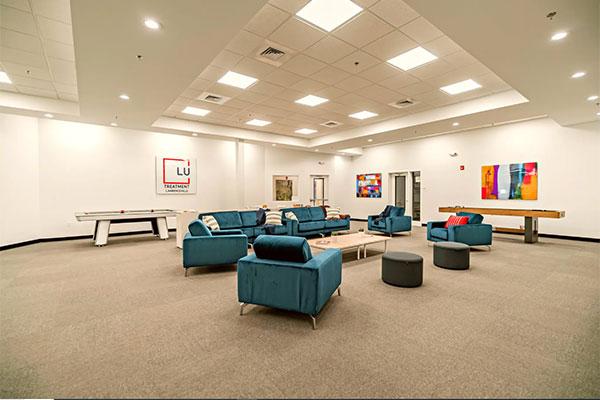
We Level Up New Jersey
Drug & Alcohol Addiction Treatment Center w/Detox
Licensed & Accredited w/ 5-star reviews.- Inpatient addiction rehab center w/medical detox
- Addiction treatment and detox for alcohol, benzo, heroin, opioid, and more.
- Secondary mental health treatment available as part of our dual diagnosis programs.
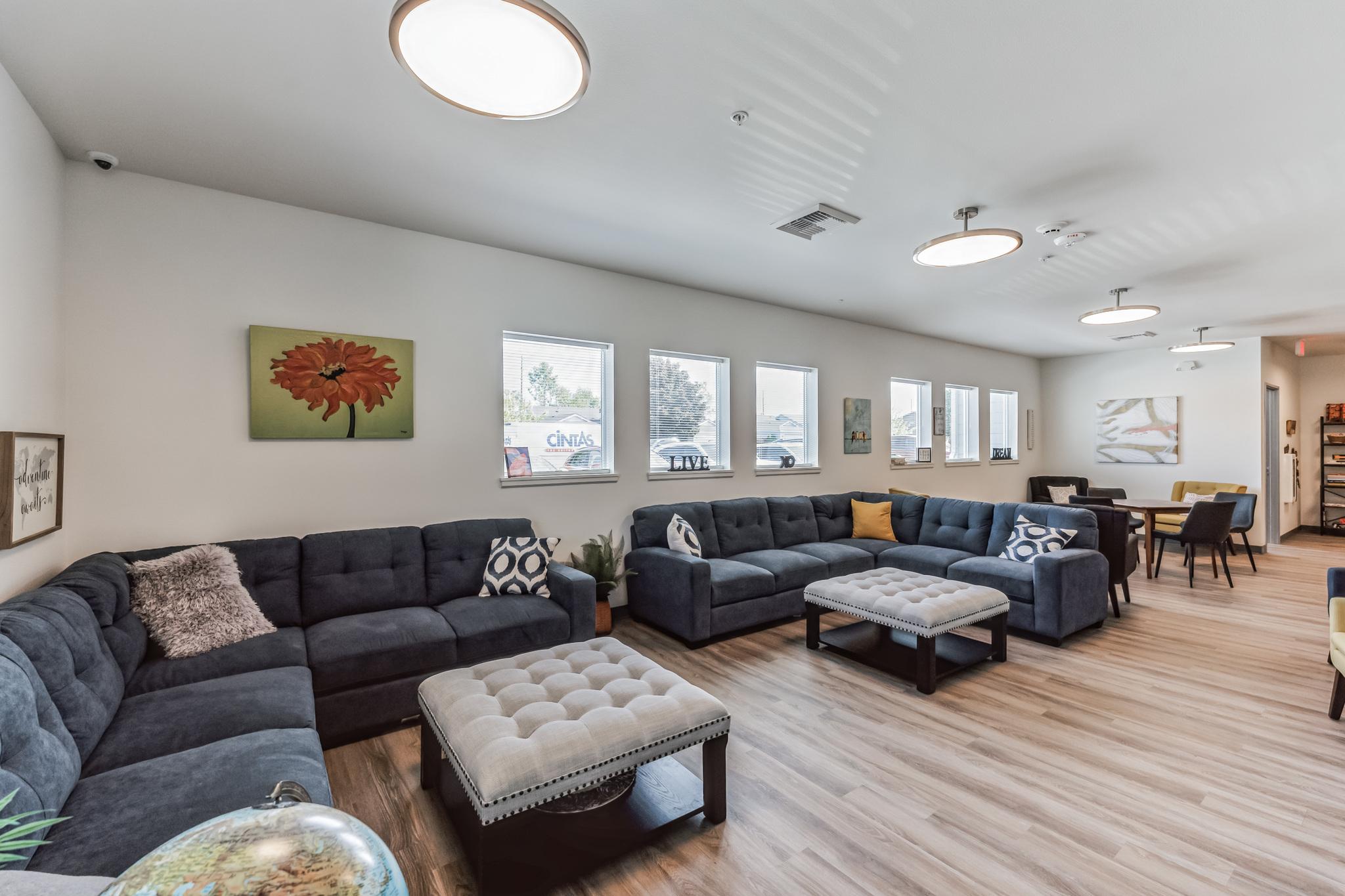
We Level Up Washington
Premier Behavioral Health Treatment Center
Licensed & Accredited w/ 5-star reviews.- Inpatient mental health treatment center
- Therapy for depression, anxiety, trauma, bipolar disorder, PTSD, and more.
- Dual diagnosis rehab programs available

We Level Up California
Drug & Alcohol Addiction Treatment Center w/Detox
Licensed & Accredited w/ 5-star reviews.- Inpatient addiction rehab center w/medical detox
- Addiction treatment and detox for alcohol, benzo, heroin, opioid, and more.
- Secondary mental health treatment available as part of our dual diagnosis programs.
Masters in Addiction Counseling Degree and Profession
To become a certified addiction counselor or pursue a career in addiction counseling, there is various certification in addiction counseling and addiction counseling degree programs available. These programs provide the knowledge and skills necessary to become an effective addiction counselor, including assessing and diagnosing substance abuse disorders, developing treatment plans, and providing ongoing support to individuals in recovery.
For individuals who have already completed a level of Masters in addiction counseling or a related degree, online addiction counseling can be a valuable addition to their professional skill set. Many addiction counselors are now offering their services online, which provides opportunities for individuals to gain experience and expand their client base.
Various addiction counseling certifications are available for people interested in pursuing a career in addiction counseling. These programs provide the knowledge and skills necessary to become a certified addiction counselor, including assessing and diagnosing substance abuse disorders, developing treatment plans, and providing ongoing support to individuals in recovery.
Do you have questions about addiction counseling online options, addiction counseling PDF resources, or treatment in general? Call our helpline 24/7.
Family Addiction Counseling
Addiction counseling for family members is a type of therapy that involves the entire family of an individual struggling with addiction. The goal of family addiction counseling is to address the impact of addiction on family dynamics, improve communication and understanding, and support the individual in their recovery journey.
During family addiction counseling, a trained therapist works with family members to identify patterns of behavior that may be contributing to the addiction and help them develop strategies to support their loved one’s recovery. Family members may also learn coping mechanisms to deal with the emotional toll of addiction, such as anger, guilt, and grief.
Family addiction counseling may include individual sessions with family members and group sessions involving the entire family. The therapist may use various techniques, such as cognitive-behavioral therapy (CBT), family systems therapy, and motivational interviewing, to address the unique needs of each family.
Counseling addicts’s families is often an essential component of a comprehensive treatment plan for addiction. It can help individuals in recovery build a solid support system, improve their relationships with family members, and reduce the risk of relapse.

We Level Up Addiction Counseling and Inpatient Centers
It’s essential to approach the recovery journey with patience and understanding, as well as under the guidance of a healthcare professional. We Level Up treatment centers can provide tailored advice, support, and potential strategies to manage the challenges that may arise throughout the healing process. Seeking professional help is crucial, especially if addiction and withdrawal symptoms are severe or distressing. Call us today for a free consultation and insurance check.
Overcoming Alcohol and Drug Addiction. Find the Support You Need.
Addiction recovery is often a challenging process to go through alone. Many people experience relapses during withdrawal in an attempt to alleviate symptoms and satisfy cravings. However, you can manage withdrawal symptoms and successfully recover with detox and rehab therapy and a robust support system at the We Level Up treatment centers. If you require assistance with your rehab journey, contact a We Level Up treatment professional now. Your call is free and confidential.
Get a free rehab insurance check without any obligation.
World-class, Accredited, 5-Star Reviewed, Effective Addiction & Mental Health Programs. Complete Behavioral Health Inpatient Rehab, Detox plus Co-occuring Disorders Therapy.
CALL(844) 597-1011End the Addiction Pain. End the Emotional Rollercoaster. Get Your Life Back. Start Drug, Alcohol & Dual Diagnosis Mental Health Treatment Now. Get Free No-obligation Guidance by Substance Abuse Specialists Who Understand Addiction & Mental Health Recovery & Know How to Help.
Top 10 Most Popular Drug Addiction Counseling FAQs
-
Is counseling drug addiction good?
Yes, counseling for drug addiction can be highly effective in helping individuals overcome their addiction. Counseling can help individuals address the underlying psychological, emotional, and social factors contributing to their addiction and develop coping mechanisms to avoid relapse.
-
Are addictions counseling done by a psychologist?
Various mental health professionals, including psychologists, licensed professional counselors, and social workers, can do addiction counseling. The specific qualifications of an addiction counselor may vary depending on the jurisdiction and the type of counseling being provided.
-
Is counseling for addiction a form of therapy?
Yes, counseling for addiction is a form of therapy. It involves talking with a trained professional who can help individuals address the underlying causes of their addiction, develop strategies to overcome it, and achieve lasting recovery.
-
What is Christian addiction counseling?
Christian addiction counseling is a type of counseling that integrates Christian beliefs and values into the counseling process. It may involve prayer, scripture reading, and other spiritual practices to help individuals overcome their addiction.
-
What is an addiction counseling Masters’?
An addictions counseling degree is a graduate-level program that prepares individuals to work as addiction counselors. It typically involves coursework in psychology, counseling, addiction studies, and supervised clinical experience.
-
Is it possible for anyone to get an online addiction counseling degree or an addictions counseling certification?
Obtaining an addiction counseling online degree or a certification in addiction counseling is possible. Many accredited universities and professional organizations offer online programs in addiction counseling, allowing individuals to complete their education and training from the convenience of their homes.
-
Is it hard to find alcohol addiction counseling near me?
The availability of alcohol addiction counseling near you may vary depending on your location and the resources available in your community. However, many online resources can help you locate addiction counseling services in your area, such as the Substance Abuse and Mental Health Services Administration’s (SAMHSA) Behavioral Health Treatment Services Locator.
-
What is counseling gambling addiction?
Counseling for gambling addiction is a type of therapy that helps individuals overcome their addiction to gambling. It involves working with a trained therapist to identify the addiction’s underlying causes, develop coping mechanisms to avoid triggers, and learn new behaviors and skills to manage cravings and maintain recovery.
The specific type of counseling may vary depending on the individual’s needs and preferences, but common approaches include cognitive-behavioral therapy (CBT), motivational interviewing, and group therapy. The goal of counseling for gambling addiction is to help individuals achieve lasting recovery and improve their overall well-being.
-
Is there counseling for families of addicts?
Yes, family counseling for addiction, often referred to as family therapy, is widely available. It aims to help family members understand addiction, cope with its impact, and learn healthier ways to support their loved one’s recovery.
-
Where to find grief and addiction counseling?
Grief and addiction counseling services can typically be found through various channels, including mental health clinics, addiction treatment centers, hospitals, and private practitioners. Moreover, community organizations, support groups, and online platforms often provide resources and referrals for individuals seeking help with grief and addiction-related issues.
Is Inpatient Alcohol Rehab Effective? What are Treatment Levels of Care? Top Alcohol and Drug Addiction Therapy Types?
Inpatient rehab addiction counseling is highly effective due to its structured environment, intensive treatment, professional guidance, group therapy, and peer support. This comprehensive approach creates an atmosphere conducive to recovery, minimizing triggers and providing individuals with the tools and support needed to overcome alcohol or drug addiction.
Experience Transformative Recovery at We Level Up Treatment Centers.
See our authentic success stories. Get inspired. Get the help you deserve.
Start a New Life
Begin with a free call to an addiction & behavioral health treatment advisor. Learn more about our dual-diagnosis programs. The We Level Up Treatment Center Network delivers recovery programs that vary by each treatment facility. Call to learn more.
- Personalized Care
- Caring Accountable Staff
- World-class Amenities
- Licensed & Accredited
- Renowned w/ 100s 5-Star Reviews
We’ll Call You
Search We Level Up Addiction Counseling Near Me, Mental Health Topics & Resources
Sources
[1] National Institute on Drug Abuse (NIDA) – Behavioral Therapies: https://www.drugabuse.gov/publications/principles-drug-addiction-treatment/evidence-based-approaches-to-drug-addiction-treatment/behavioral-therapies
[2] Substance Abuse and Mental Health Services Administration (SAMHSA) – Treatment: https://www.samhsa.gov/treatment
[3] National Institute on Alcohol Abuse and Alcoholism (NIAAA) – Treatment for Alcohol Problems: Finding and Getting Help: https://www.niaaa.nih.gov/publications/brochures-and-fact-sheets/treatment-alcohol-problems-finding-and-getting-help
[4] Veterans Affairs (VA) Substance Use Disorder Program – Treatment: https://www.mentalhealth.va.gov/substance-use/treatment.asp
[5] National Council on Alcoholism and Drug Dependence (NCADD) – Treatment and Recovery: https://www.ncadd.org/about-addiction/treatment
[6] American Society of Addiction Medicine (ASAM) – What is Addiction Medicine?: https://www.asam.org/resources/about-addiction-medicine/what-is-addiction-medicine
[7] Institute of Medicine (US) Committee on Opportunities in Drug Abuse Research. Pathways of Addiction: Opportunities in Drug Abuse Research. Washington (DC): National Academies Press (US); 1996. 8, Treatment. Available from: https://www.ncbi.nlm.nih.gov/books/NBK232966/
[8] Jahan AR, Burgess DM. Substance Use Disorder. [Updated 2023 Jul 21]. In: StatPearls [Internet]. Treasure Island (FL): StatPearls Publishing; 2023 Jan-. Available from: https://www.ncbi.nlm.nih.gov/books/NBK570642/
[9] Center for Substance Abuse Treatment. A Guide to Substance Abuse Services for Primary Care Clinicians. Rockville (MD): Substance Abuse and Mental Health Services Administration (US); 1997. (Treatment Improvement Protocol (TIP) Series, No. 24.) Chapter 5—Specialized Substance Abuse Treatment Programs. Available from: https://www.ncbi.nlm.nih.gov/books/NBK64815/
[10] National Institute of Mental Health (NIMH) – Substance Use and Co-Occurring Mental Disorders


